AFTERWORD
 It is not the purpose of a book of this sort to attract potential students to any one mystery school. In most countries of the modern industrial world, there are dozens or hundreds of such schools, and in the United States there are several thousand, including traditions from every corner of the world. As a student of the mysteries, I have worked with close to a dozen schools in two Western traditions, but this is hardly enough to make recommendations. It is enough, at most, to learn that the school that satisfies the inner needs of one student will as often as not be wholly inappropriate to another.
It is not the purpose of a book of this sort to attract potential students to any one mystery school. In most countries of the modern industrial world, there are dozens or hundreds of such schools, and in the United States there are several thousand, including traditions from every corner of the world. As a student of the mysteries, I have worked with close to a dozen schools in two Western traditions, but this is hardly enough to make recommendations. It is enough, at most, to learn that the school that satisfies the inner needs of one student will as often as not be wholly inappropriate to another.
Some advice, however, can be offered to those who feel themselves called to the work of the mystery schools. It is probably necessary to mention, first of all, that many organizations of the kind I have called mystery schools do not use this venerable name for themselves, at least in public. Some of the organizations that do use this term for themselves are moneymaking schemes or groups purveying the sort of popular spirituality called into question in this book. A mystery school worth the name, however, can be known by certain signs, of which the following are the most important.
First, an authentic mystery school offers its teachings as inexpensively as its circumstances will permit. The realities of the world of manifestation in a materialistic age do not always permit the teachings to be given away for nothing; instructional materials cost money to print and mail, and teachers of the mysteries also have to eat. Still, any school that charges enough to place a continuing strain on even a very modest monthly income should be avoided. It is a good sign when a school's elementary teachings can be found in print or in some other form the general public can easily obtain.
Second, an authentic mystery school does not call attention to itself, beyond the modest level of publicity necessary to allow interested persons to find it: a few ads in periodicals, a website, a few pages in the back of an instructional book sold to the general public, and the like. This same modesty extends throughout the activities of a real mystery school. For example, you will never hear an authentic mystery school claim to be the only valid source of initiation or spiritual teaching, or even the best such source. Claims that the teacher of a school has unique spiritual powers or status that transcends that of other mystery teachers is a sign that the school is one to avoid. The initiates of an authentic mystery school know better than to make such claims or allow them to be made.
Third, an authentic mystery school makes only those promises it can keep, and it is able to provide reasonable proof of its claims. If you encounter a school that claims to teach its initiates how to fly through the air by magical means, for example, it is perfectly reasonable to ask for a demonstration and equally reasonable to walk away if one is not forthcoming. If a school claims to produce initiates who are wise, compassionate, and insightful, it is only fair to expect its initiates to behave that way under most circumstances and to expect them to recognize their mistakes and correct them when, being human, they occasionally fail to behave this way. To use a popular phrase, the initiates of a mystery school should always be expected to walk their talk.
Those who hope to become students of a mystery school, in turn, should expect to show the equivalent qualities themselves. They should be willing to contribute their share to meet the reasonable expenses of the school. They should be modest about their own knowledge, whatever that may happen to be, and go into the school with the assumptiona surprisingly rare one these daysthat when the school's teachings disagree with their current opinions, the possibility that the school may be right should at least be worth considering. They should expect to walk their own talk, keep whatever agreements and promises they make as part of their training, and devote honest effort to the studies and practices the school offers. Mystery schools exist to teach, but they are not obligated to teach those who are not willing to learn.
When the student is ready, says an old but accurate maxim, the teacher will appear. There are plenty of things a prospective student can do to approach that state of readiness. The most important of these preparatory tasks is to learn and regularly practice some system of meditation. The meditations given earlier in this book offer a first step in that venerable art, but only a first step. There are plenty of books in print that cover the basics of meditation in a more detailed manner, and classes can also be found in many communities.
Books on the teachings of mystery schools are also worth reading, both as an introduction to the mysteries and as an important part of the early stages of following their path. Among the books I can recommend, in the two mystery traditions in which I have some experience, are the following.
William Walker Atkinson (writing as Three Initiates), The Kybalion: All but forgotten today, Atkinson was an influential teacher of the mysteries in the early twentieth century, writing under several pen names. His most important book, The Kybalion, has been the standard introduction to mystery teachings in American mystery schools from its publication in 1912. Its seven Hermetic principles should be compared to the seven laws of spiritual ecology presented in this book.
W. E. Butler, Apprenticed to Magic and The Magician: His Training and Work: Butler was a student and initiate of Dion Fortune (see below) and an influential teacher and founder of mystery schools. These are the best of his books, but all his writings deserve careful study.
Dion Fortune, The Mystical Qabalah and Sane Occultism: Violet Firth, to use her real name, was among the twentieth century's most important mystery-school teachers. She taught and initiated most of a generation of teachers of the mysteries in Britain and also wrote excellent books, of which these two are the most useful for beginning students.
Manly Palmer Hall, Lectures on Ancient Philosophy and Self-Unfoldment by Disciplines of Realization: The most influential mystery-school teacher in twentieth-century America, Hall is best known for his early work The Secret Teachings of All Ages, but the two books listed above are more valuable guides to the theory and practice of the mysteries.
William Quan Judge, The Ocean of Theosophy: Theosophy was founded in 1875 by a group of initiates in an effort to make the mystery teachings more available to the public of that time, and the works published under its name have been standard reading in most mystery schools in the Western traditions for many years. Judge was one of the movement's original members, and this book is the best short introduction to its teachings.
Gareth Knight, A Practical Guide to Qabalistic Symbolism and The Secret Tradition in Arthurian Legend: Another of Dion Fortune's students and a founder of several mystery schools active throughout the English-speaking world, Knight has written many books on the mysteries, but these two are arguably his best.
Eliphas Lvi, Transcendental Magic: Alphonse Louis Constant, to use his real name, played a crucial role in reviving the Western tradition of the mysteries in the middle years of the nineteenth century, when they were at a low ebb. Of his many books, this is widely considered the best.
Ross Nichols, The Book of Druidry: Nichols, a British poet and painter, was a major figure in the twentieth-century Druid mysteries, and this challenging but important book is a comprehensive study of Druid mystery teaching.
Next page
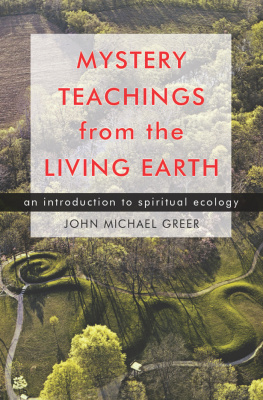
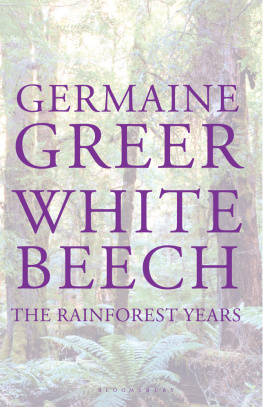
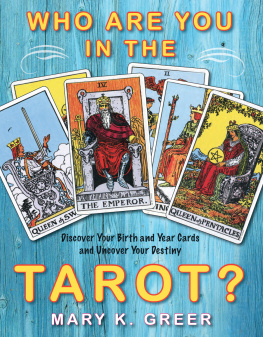
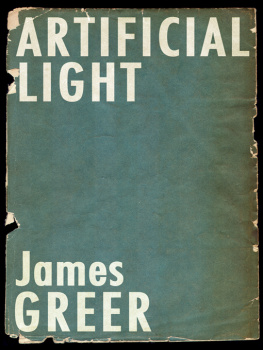
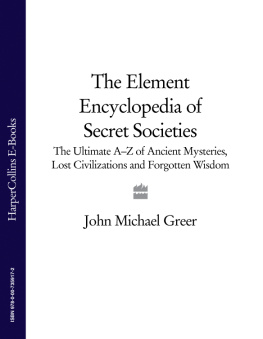



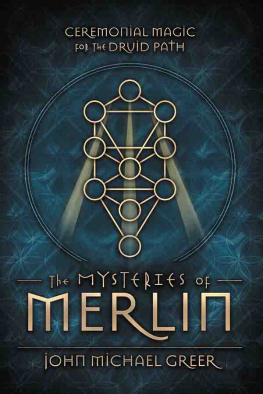
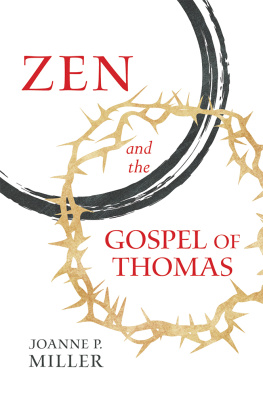
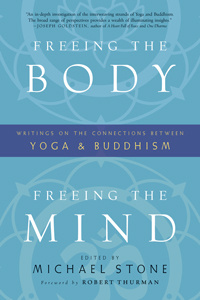
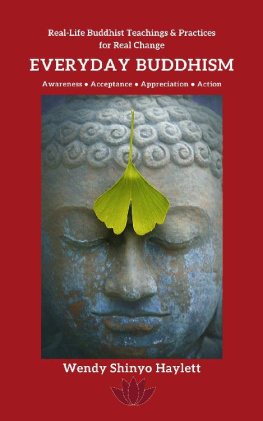
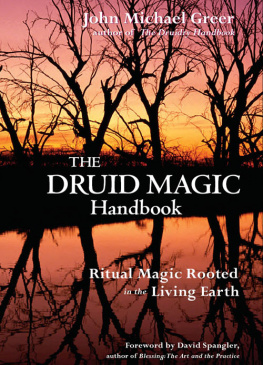
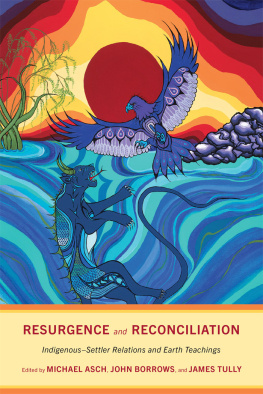
 It is not the purpose of a book of this sort to attract potential students to any one mystery school. In most countries of the modern industrial world, there are dozens or hundreds of such schools, and in the United States there are several thousand, including traditions from every corner of the world. As a student of the mysteries, I have worked with close to a dozen schools in two Western traditions, but this is hardly enough to make recommendations. It is enough, at most, to learn that the school that satisfies the inner needs of one student will as often as not be wholly inappropriate to another.
It is not the purpose of a book of this sort to attract potential students to any one mystery school. In most countries of the modern industrial world, there are dozens or hundreds of such schools, and in the United States there are several thousand, including traditions from every corner of the world. As a student of the mysteries, I have worked with close to a dozen schools in two Western traditions, but this is hardly enough to make recommendations. It is enough, at most, to learn that the school that satisfies the inner needs of one student will as often as not be wholly inappropriate to another.